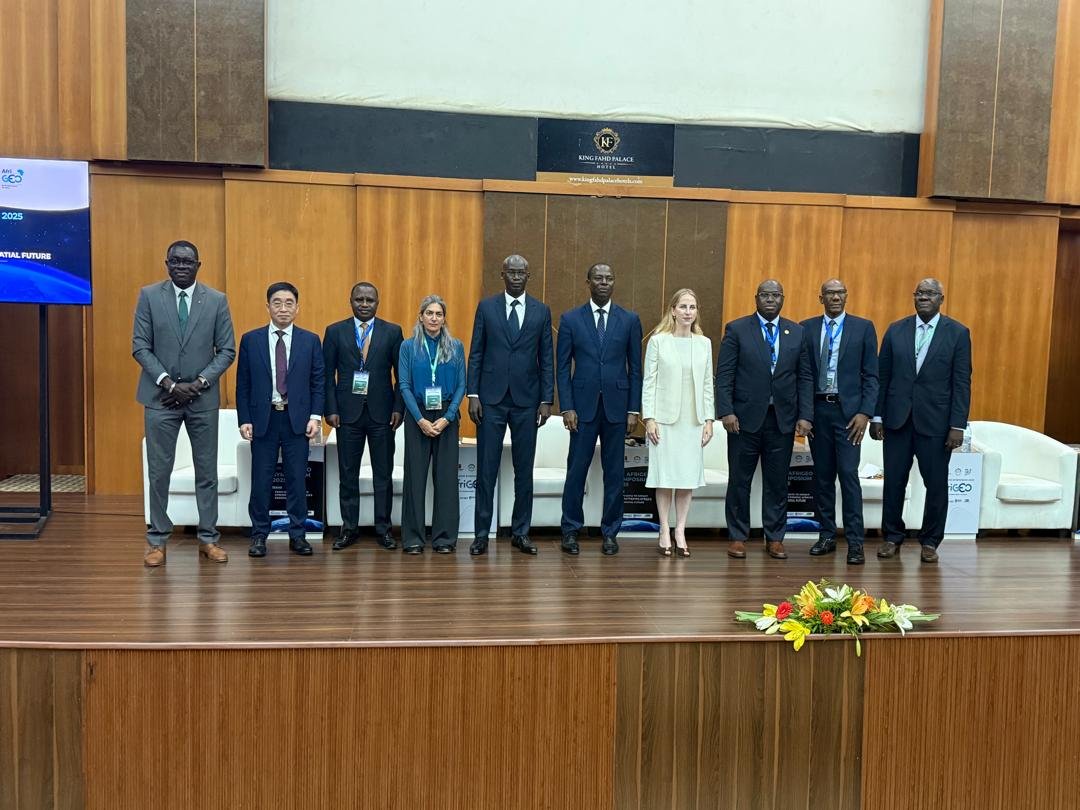The 9ᵗʰ AfriGEO Symposium in Dakar, Senegal (6 – 9 October 2025), held under the theme “From Data to Impact: Strengthening Africa’s Geospatial Future,” the AfriGEO and Digital Earth Africa communities leave with renewed purpose and a shared vision to turning Africa’s growing Earth Observation (EO) capabilities into measurable social and environmental impact.
Over four days of plenaries, workshops, and cross-sector dialogues, participants demonstrated that EO and geospatial technologies are now essential pillars for Africa’s development driving climate resilience, land and water management, health surveillance, urban planning, and the blue economy.
Opening Reflections: Africa Owning Its Space Story
The opening ceremony set the tone for Africa’s geospatial ambitions.
“Space is not a luxury; it is infrastructure. The silent engine of food security, climate resilience, intelligent agriculture, disaster response, and data sovereignty,” H.E. Dr. Tidiane Ouattara, President, Africa Space Council. Dr. Ouattara reminded delegates that Africa’s future prosperity is tied to its ability to harness space technology for continental priorities aligned with Agenda 2063 and the Africa Space Policy.
“We must move beyond ‘data for data’s sake.’ Geospatial intelligence must connect directly to national priorities, community needs, and institutional decisions.” Prof. Cheikh Mbow, Director General, Centre de Suivi Écologique (CSE) Senegal. Prof.Mbow called for practical integration of EO data into decision making systems emphasizing that technology’s value lie in the real-world change it enables.
Adding the partner perspective, Dr. Lisa Rebelo reflected on the shared mission, “AfriGEO is about collaboration and collective progress. Through partnerships like this, we ensure that Earth observation data is not only accessible, but actionable to supporting countries to make informed decisions for their people and environment.” Dr. Lisa Rebelo, Acting Managing Director, Digital Earth Africa.
Highlights and Key Themes
The symposium’s first day was dedicated to technical trainings from WebGIS / GEOGLOWS for integrated water resource management, to agricultural monitoring using combined satellite and in-situ data, drone processing, air-quality analysis, settlement mapping, and a DE Africa communicating science insights and coastal applications workshop. These sessions reinforced that skills development remains the foundation of sustainability.
Across plenaries and panels, experts explored the intersection of policy, infrastructure and innovation from land-use intensity modelling to open data systems, environmental health linkages, marine and coastal services and gender responsive approaches to data. Participants agreed that the path from data to policy must be direct, usable and measurable.
A strong focus on youth inclusion ran through the event. The launch of the AfriGEO Youth Community of Practice signalled a commitment to empower young Africans as co-creators of geospatial solutions. Discussions on gender equity further emphasized that inclusion is not an afterthought.
Perhaps the most consistent message was the shift from data to impact. Delegates stressed that EO must be co-designed with users and accompanied by clear pathways for uptake. The emerging narrative is that Africa no longer lacks data, but it seeks impact, ownership and sustained application.
Reflections
For Digital Earth Africa, Dakar reaffirmed its mission to deliver free, decision-ready data and analysis tools that support African institutions to plan, respond and thrive. Yet the symposium also clarified what is needed to move from vision to delivery. That is alignment, capacity, inclusion and storytelling.
The coming phase will focus on embedding EO services in national and regional systems, strengthening institutional partnerships and building capacity from analysts to policy champions. Equally important will be ensuring that youth and women remain central to this growth and that success stories are shared widely to inspire collective adoption and investment to shape a more resilient, informed and sustainable continent.
 English
English  Português
Português  Français
Français  العربية
العربية 